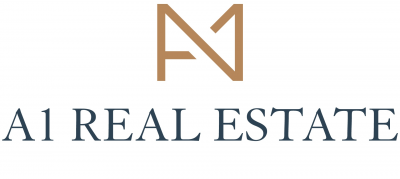
Hôtel vs appart-hôtel vs appartement meublé : quelle option pour un séjour de 3 à 12 mois à Paris ?
Fractional ownership, also known as shared ownership, gives first-time property buyers and those who do not currently own a home the opportunity to buy a share in a new construction or resale property.
The buyer pays a mortgage on the share that they own and pays rent to a housing association on the remaining portion. Since the buyer only needs a mortgage for the portion they buy, the amount of deposit required is usually much lower than what would be needed for a total purchase.
The buyer has the opportunity to increase their share during their stay in the property through a process known as “stair buying” and, in most cases, it can go up to 100% of the property. In this case, the co-owner will no longer pay rent, but only their mortgage, as well as the service fees and the property fee.
What is staircase purchase?
Buying larger shares in fractional ownership refers to “stair buying” or “stair purchase”. Once this share is owned for a certain period of time (normally 1 to 2 years), it will be possible to buy more shares.
If you own 25% of the property, you pay rent on the other 75% of the property. Escalation could mean buying another 25% share (or “slice”), meaning you'll then own 50% and pay rent on the remaining 50%.
What are the advantages and disadvantages of fractional ownership?
- You only own (and have to pay for) a fraction of the assets
- Access to higher-priced properties for less
- More affordable than buying a full property
- Each fractionate pays only his share of the annual expenses and maintenance
- Apply to very well-finished and designed properties in idyllic locations
- Benefit from part of the real estate capital gain at the time of sale
- You don't have to wait to enjoy your stay on the property
- Personalized relationship with the property management company that will know the requests, needs, and desires of each fractionate and will create a home with their personal belongings.
- Use by fewer owners, so less wear and tear.
- Rental options to generate income
- Possibility of resale through the management company, a group of owners, and real estate agents.
- Possibility to sell its shares at any time after the first 12 months of acquisition. They can be sold on the market through a real estate agent.
Disadvantages
- Return to the same destination every year (This can also be an advantage!)
- Share the property with owners that you may not know
- No change in the décor of the property
- The reservation of the stay is done through a rotation calendar via the property management company, just like with the other co-owners.
What is the difference between fractional ownership and timeshare ?
A timeshare and fractional ownership are often referred to as “shared ownership” and share similar characteristics.
The most important distinguishing factor is the number of owners per property.
Most timeshares involve up to 52 owners per unit, while other kinds mostly involve up to 26. This commonly means shorter stays and more wear and tear. Indeed, most timeshare owners visit their property very little, often for only about one week a year. As such, owners typically have very little attachment to the property. But oftentimes, this lack of connection results in a lack of proper care and maintenance too.
On the other hand, most fractions involve 2 to 12 owners, which means they stay there longer. Ownership shares are larger and esteem is greater, investment and participation are greater, and in turn, the maintenance and operation of the property are better too.
In general, fractions involve larger apartments and houses, include more amenities, and have better finishes. They have quality construction and come with more resources for maintenance and better management. Coupled with fewer users, the property is kept in good working condition.
Fractional ownership properties are usually controlled by an association of fractionals. Operational responsibility is delegated to a manager (or management company), but owners retain the right to replace management if they feel the need to.
In contrast, most timeshares are permanently controlled by a hotel promoter or operator (remember that timeshares are held by professionals and not individuals) and buyers have often considered themselves as regular customers coming on holiday.
Fractional ownership vs Timeshare
- Holding a share of the real estate asset
- 4 to 5 weeks of use per year.
- Possibility to own the property for as long as you want to keep it.
- Sharing of maintenance costs and annual operating costs.
- Quality properties can expect capital appreciation over time.
- Personal belongings can be displayed on the property or safely stored.
- Properties often have private pools, gardens, and private dining opportunities.
- Has only a set period of time each year
- Expiry of the right of use after a specific number of years
- Maintenance costs are billed by management monthly or annually, with a fixed increase for each year.
- No capital appreciation, only depreciation.
- No personalization of the property.
- Shared equipment
Why buy a shared-ownership home?
- The rent is lower than the open market rate
- 75% of the investment is paid back in rents net of maintenance costs - guaranteed over a period of 11 years.
- It is possible to buy as many fractions as you want. Each one entitles you to four weeks of ownership, two of which are automatically entered into the rental program, which can help you avoid paying VAT on the property.
- All maintenance, insurance, and municipal tax costs are divided by the fraction.
- Fractional ownership properties are often found in private projects, as a number of such units are often required as part of a project's building permit. This makes it possible to offer affordable housing in highly sought-after areas.
Which assets are affected by shared ownership?
Among the most common properties purchased in fractional ownership are tourist accommodations, pleasure boats, tourist or business planes, and even recently, hotel rooms. For the latter, a fractional owner can purchase a room or a studio in the hotel.
A detached house will be purchased via an SCI and the steps are similar to any other real estate transaction in Europe.
- Fractional ownership is for people who would like to own their own home but cannot afford to buy on the open market.
- This process has advantages and disadvantages
- Fractional ownership can be compared to a timeshare but they are fundamentally different
- A detached house is bought in SCI.
- Among the most commonly purchased properties are: tourist accommodations, pleasure boats, tourist or business planes, and hotel rooms.
- The buyer has the opportunity to increase their share during their stay through a process known as “stair buying”.

You want to
to sell in Paris or its surroundings ?
Posted on 10/11/2022 by
Andy LECUYER




